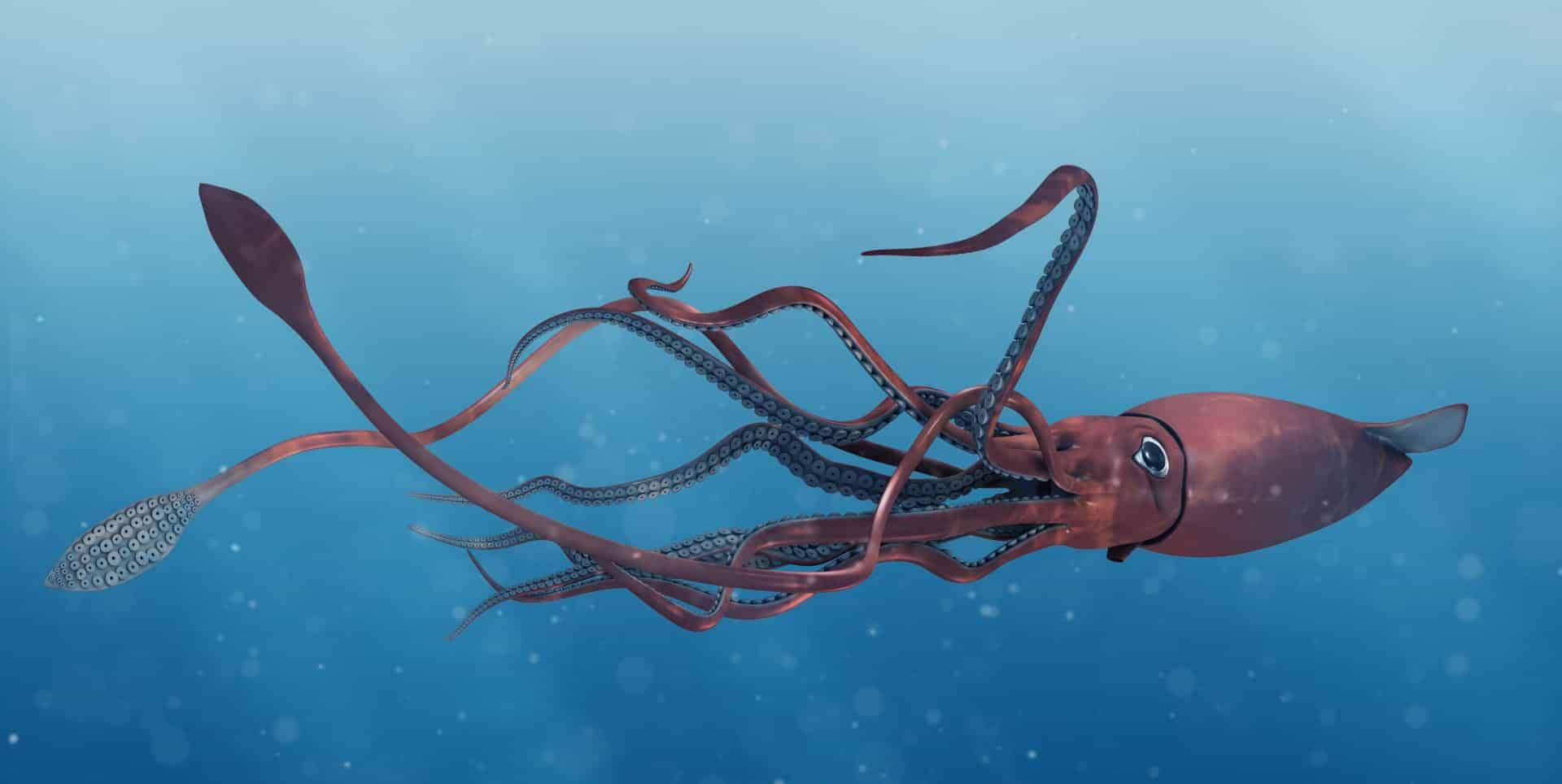Giant squid don't attack ships, but they're still terrifying predators.

Giant squid are mysterious deep-sea predators with basketball-sized eyes and tentacles that can stretch up to 10 meters long. The giant squid is one of the largest invertebrates in the world and belongs to an ancient mollusk called cephalopods, which also include octopus, cuttlefish and nautilus.
True giant squid live at depths of at least 900 meters below the surface of the sea and do not attack ships.
Scientists still have a lot to learn about the life of giant squid. Researchers have only been able to capture footage of these elusive giants in their natural environment twice, both times in the last 10 years. Experts are still unsure how many giant squid there are, or how many different species may exist.
How big is the giant squid?
The largest giant squid ever found, including its tentacles, is almost 13 meters long, about as long as a semi-trailer. Sperm whales prey on giant squid, but the size of the giant squid beak found in their stomachs, scientists estimate the species may have grown to 20 meters long. Among many squid species, females are larger than males, and scientists believe the same is true of giant squid. Squids have eight arms and two tentacles, with spiked suction cups that help to catch prey and pull them towards their beaks. The squid beak is made of hard chitin, the same material as insect exoskeletons
Where do giant squid live?
Giant squid can be found at least 900 meters deep in oceans around the world, but their exact geographic extent is unclear. According to the International Union for Conservation of Nature (IUCN), giant squid are most commonly found in the North and North Pacific Oceans, as well as near South Africa and New Zealand. Some scientists believe that giant squid should be divided into several different species, including different species in the Populations of the North Atlantic, North Pacific and Southern Oceans. However, a study published in 2013 analyzed 43 giant squid samples collected from its range and found little genetic diversity. This suggests that giant squid are a single species and mixed together through migration.
Giant squid life cycle
Giant squid are lonely, and scientists aren't sure how males find females to breed. The researchers hypothesized that since males and females may only meet occasionally, females collect and store sperm from multiple males. A female caught off the coast of Japan in 2020 had only one male sperm, suggesting that the giant squid may actually be monogamous. Scientists aren't sure what squid mating looks like. Experts hypothesized that males placed sperm on the arms of female squid and suspected that females might release eggs and hold them as they fertilized in water, and that females would subsequently release millions of fertilized eggs to stick together to form an egg mass. Small squid hatch from their mother's eggs only 1 to 4 mm long and feed in the upper ocean at a depth of about 650 200 m, before descending deeper into the ocean as they mature. Natural history Squid have a short lifespan, with most species only surviving for one to three years. While scientists don't know the exact lifespan of giant squid, they don't think it will be more than five years, so they have to grow fast.
What does giant squid eat?
Giant squid eat other smaller squid species and prey on fish, and giant squid themselves are prey to sperm whales. But cephalopods don't fall without a fight, and sperm whales often find suction cup-like scars after hunting giant squid.
Giant squid on the brink of extinction?
Giant squid are listed as the least concerned species by the IUCN, meaning they do not face the threat of extinction. Their geographical range is wide, and they are less likely to be negatively affected by human activities than many other species because they live in the deep sea. However, scientists aren't sure how big the giant squid is, or what threats it might face.